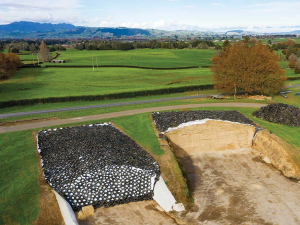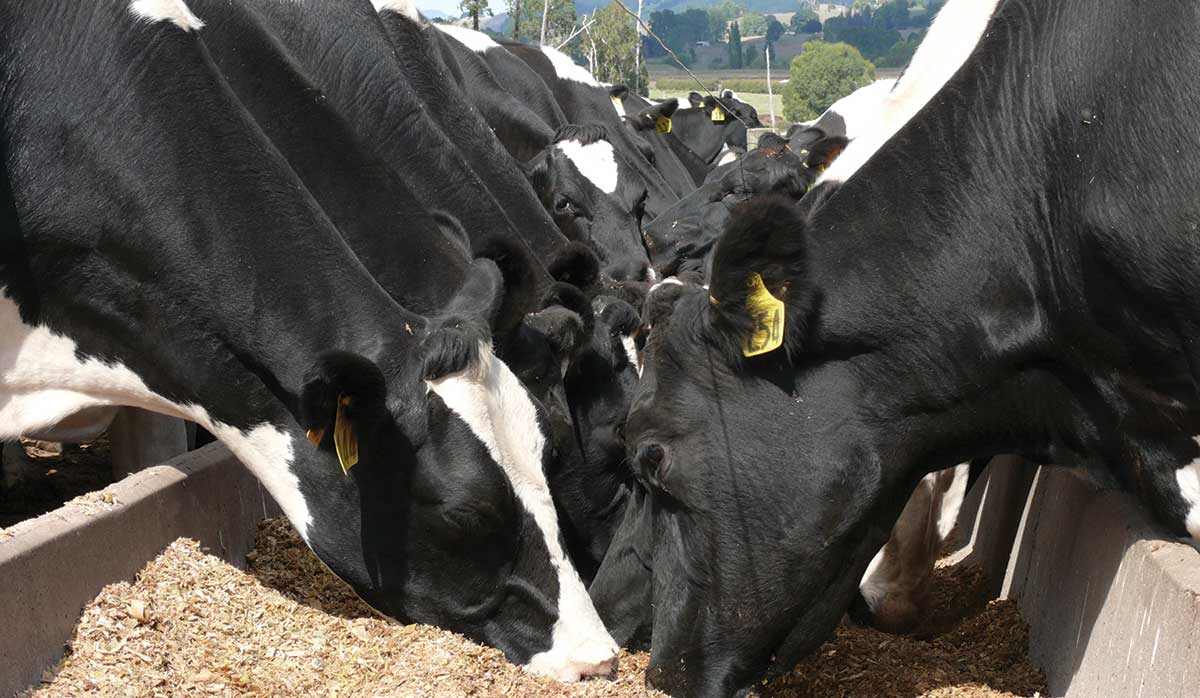Hitting heifer liveweight targets
Early December marks a key transition for many dairy farmers, as weaned replacement heifers head off-farm to grazing.
 Securing enough high-quality feed ahead of time is essential for maintaining production, managing costs, and reducing risk.
Securing enough high-quality feed ahead of time is essential for maintaining production, managing costs, and reducing risk.
OPINION: Few things are more stressful for dairy farmers than running out of feed when cows need it most.
Securing enough high-quality feed ahead of time is essential for maintaining production, managing costs, and reducing risk.
My colleagues and I regularly hear from farmers who want to maintain consistent milk production while keeping control of their feed costs. Rising costs of imported feed and variable pasture growth rates are driving more interest in homegrown supplementary feed options. Maize silage is one of the best farm system feeds available to farmers. Compared to other feeds, it can be stored when there is a pasture surplus or used when there is a pasture deficit.
Plan now to avoid feed shortages
This season's dry conditions have created feed shortages on some farms, forcing many to secure costly alternatives at short noice. Much like a savings account, a well-managed silage stack provides security against seasonal fluctuations. If payout projections for the coming season eventuate, demand for supplementary feed will put further pressure on both supply and price. There is little extra stored feed available at the moment, but planning now can help you manage feed supply and cost for next season.
Farmers considering growing maize silage should assess the full picture, including available paddocks nutrient balance and potential pasture forgone. Growing maize silage on-farm can be cost-effective, particularly when paddocks need reversal or excess nutrients need to be utilised. However, realistic yield estimates and costings are essential to ensure it is economically viable.
For those planning to buy in maize silage in autumn 2026, talk to a contract grower now. Locking in volume early may provide cost certainty and secure supply ahead of rising demand.
 |
|---|
|
Feeding maize silage supports better body condition at calving and extends days in milk. |
Why Maize Silage?
Maize silage offers several farm system benefits that make it an ideal supplementary feed:
Securing feed for the future
With uncertainty around weather patterns and market conditions, planning ahead is crucial to avoid future feed shortages. Whether growing maize silage on farm or securing supply from a contract grower, now is the time to act. Having maize silage in the stack ready to go whatever the season may throw at you makes good farming sense - don't get caught short.
If you need advice on planning for the season ahead, talk to your carm consultant or nutritionist or contact one of our Farm Systems Specialists, Matt Dalley or Wade Bell, at www.pioneer.co.nz
Wade Bell is Genetic Technologies farm systems manager. Contact him at This email address is being protected from spambots. You need JavaScript enabled to view it.
Voting has started for the renewal of DairyNZ's milksolids levy.
The most successful catchment groups in NZ are those that have 'a source to sea' approach.
Associate Agriculture Minister and Manawatu dairy farmer Andrew Hoggard says the free trade agreement (FTA) negotiated with India is not a bad deal and his party, Act, will support it when it goes before Parliament.
Newly released data from Environment Canterbury (ECan) Farm Environment Plan (FEP) audits are showing a dramatic lift in environmental performance across the region.
A solid recovery of global dairy prices this year makes a $9.50/kgMS milk price almost a shoo-in for this season.
As New Zealand marks the United Nations’ International Year of the Woman Farmer 2026 (IYWF 2026), industry leaders are challenging the misconception that women only support farming.
OPINION: Fonterra may be on the verge of selling its consumer business in New Zealand, but the co-operative is not…
OPINION: What does the birth rate in China have to do with stock trading? Just ask a2 Milk Company.